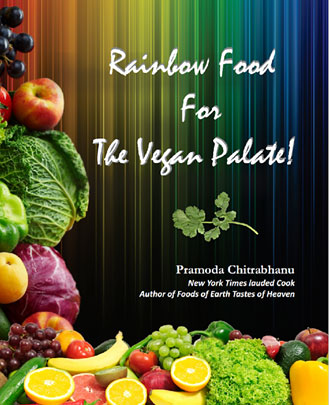For thousands of years people, the world over, has sought to experience Ahimsa as an inherent, living, active expression of God within. The term Ahimsa comes from the Sanskrit language which means non-violence or non-killing. When seen in a more positive context it means dynamic harmlessness or dynamic compassion.
Such a definition would not only encompass the renunciation of the will to kill but also the renunciation of the intention to hurt any living being through hostile thought, word, and deed. It is the conscious integration of Ahimsa into every aspect of daily life.
Just as violence takes countless forms, so does non-violence, and there are many ways to bring Ahimsa into our life. We might adopt a vegan diet, volunteer at our local animal shelter, or strive to be kinder to our family, friends, working place and local communities. Anything we do to prevent others from pain and suffering qualifies as an expression of Ahimsa.
The concept of Ahimsa extends to all living beings, and therefore, protection of the environment, natural resources, natural habitats, vegetarianism, and veganism are its natural derivatives.
Despite our devotion to Ahimsa, the vegetarian community’s embrace of veganism is full of resistance and reluctance. Why there is so much resistance to adopting a lifestyle that minimizes and saves us from gross violence? Is it the fear of change or giving up something that we are fond of? Is it because we are following a tradition? Each one has to find his or her answer from within.
The word “veganism” denotes a philosophy and way of living which seeks to exclude — as far as possible and practical — all forms of exploitation of, and cruelty to, animals for food, clothing or any other purpose; and by extension, promotes the development and use of animal-free alternatives for the benefit of humans, animals and the environment. In dietary terms, it denotes the practice of replacing all products derived wholly or partly from animals.
Vegans live on a plant-based diet, so exclude flesh, fish, poultry, seafood, eggs, honey, and animal gelatin from their diet. Dairy products such as animal milk, butter, cheese, yoghurt (curd), and ice cream find no place on their menus. Compassion now permeates their lifestyle where items of animal origin like leather, silk, wool, pearl, and others are out of their wardrobes.
Many vegans choose this lifestyle to promote a more humane and caring world. For example, some vegans feel that they promote the meat industry by consuming eggs and dairy products. That is, once dairy cows or egg-laying chickens are too old to be productive, they are often sold as meat; and since male calves do not produce milk, they usually are raised for veal or other products. Some people avoid these items because of the conditions associated with their production.
They know they are not perfect, but believe they have a responsibility to try to do their best, while not being judgmental of others.
Choosing veganism is conscientiously choosing compassion over killing, ecological preservation over destruction, health over disease, and simplicity over complexity. As everything in this universe is interconnected, each decision we make affects not only ourselves, but our neighbours, the planet, and all the creatures that share our earth’s home.
To truly understand that this is a process involving our life’s journey, a transition and a transformation is required to realize that for food to be pure it must not be tainted with blood, misery, pain and suffering of innocent beings.
It takes a lot to give up what we are used to, but what we get in return is unmeasurable – the blessings of those innocent animals. A certain kind of joy is experienced when we liberate others from suffering because indirectly we liberate ourselves from suffering.
As Jains abstain from meat, here I would like to bring to light the karmic effect of violence on our life by consuming dairy.
Ahimsa is the first rule of conduct that bars the killing or injuring of living beings. It relates to the law of cause and effect. Every kind of violence is followed by negative karmic consequences. When the animals are killed, mutilated, tied by force, loaded with heavy loads, or kept hungry one violates the first vow of causing suffering.
Therefore, the followers believe that when the calves go hungry as humans take their milk, we become the cause of their hunger which creates negative vibrations. To do anything hurtful, to encourage others to do or to appreciate others doing it results in the same attraction of negative karma and therefore we see a rampant rise in lifestyle diseases.
When the cow, buffalo or calf is not allowed to live his or her destined life because life abruptly ended in agony, one becomes responsible for the same fate in one’s own life. It is not surprising when this affects the longevity karma of the person. By reducing the longevity of others, we reduce our longevity.
In society, the norm is that to take anything without the permission of their owner is theft. We have not taken permission from the cow to take her milk. Have we? Cows are tied and cannot prevent us from milking them. We are violating another principle of Dharma which is non-stealing.
To milk the cow the mother is separated from her baby by force in fear of the calf consuming all the milk. In this situation, one acquires the karma of obstruction in one’s life.
For spiritual progress passion creating foods (vigaya ) in daily life should be avoided. Since all animal products, including, dairy are passion-creating foods one must refrain from consuming them.
Every kind of violence perpetuates the karmic bondage and repeated cycle of births and deaths. We will never be able to free ourselves from this cycle of reincarnation unless we free ourselves from violence.
It is fair to say that Ahimsa provides the most important ethical framework for veganism. There are many interconnections between veganism and Ahimsa as both involve non-violence as a way of life.



ధన్యవాదములు